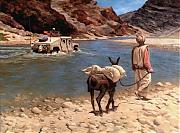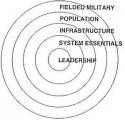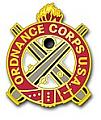
Originally Posted by
Bill Moore

I don't know how you design an organization that welcomes both, so you can synergize their unique strengths. Clearly we need intellectual leadership to help design an overall strategy for our war on terrorism, instead of the narrow minded, anti-intellectual, find, capture/kill approach we're using now. We also need experienced warriors to lead the troops in the execution of this strategy. The intellectual can remain aloof, he needs to hear what the guys on the ground are saying, and adapt, and vice versa. Very easy to conceptualize all of this, but it another thing to put it into practice.












 .
.




Bookmarks